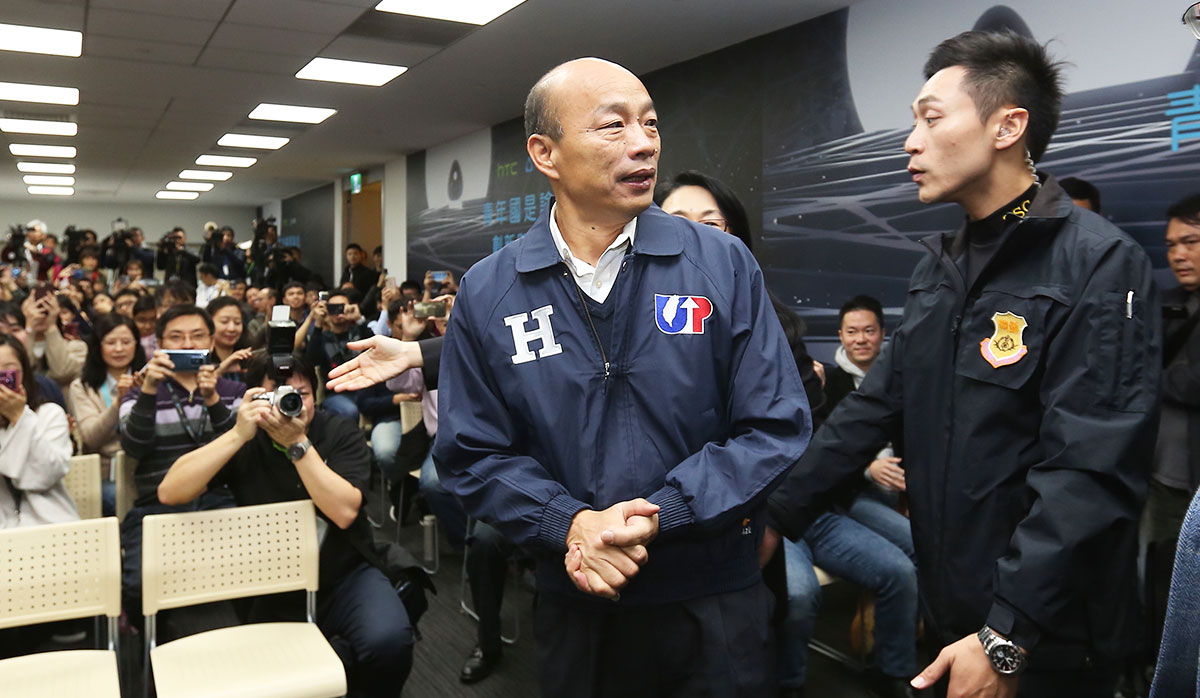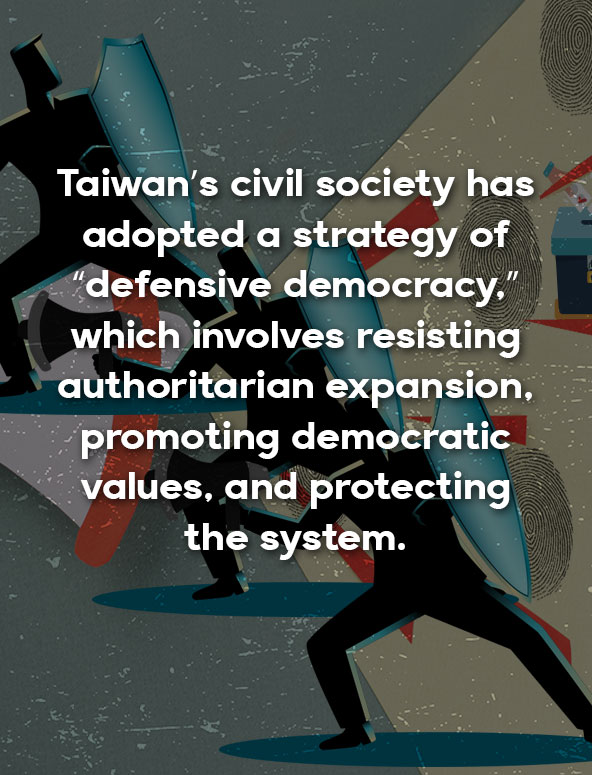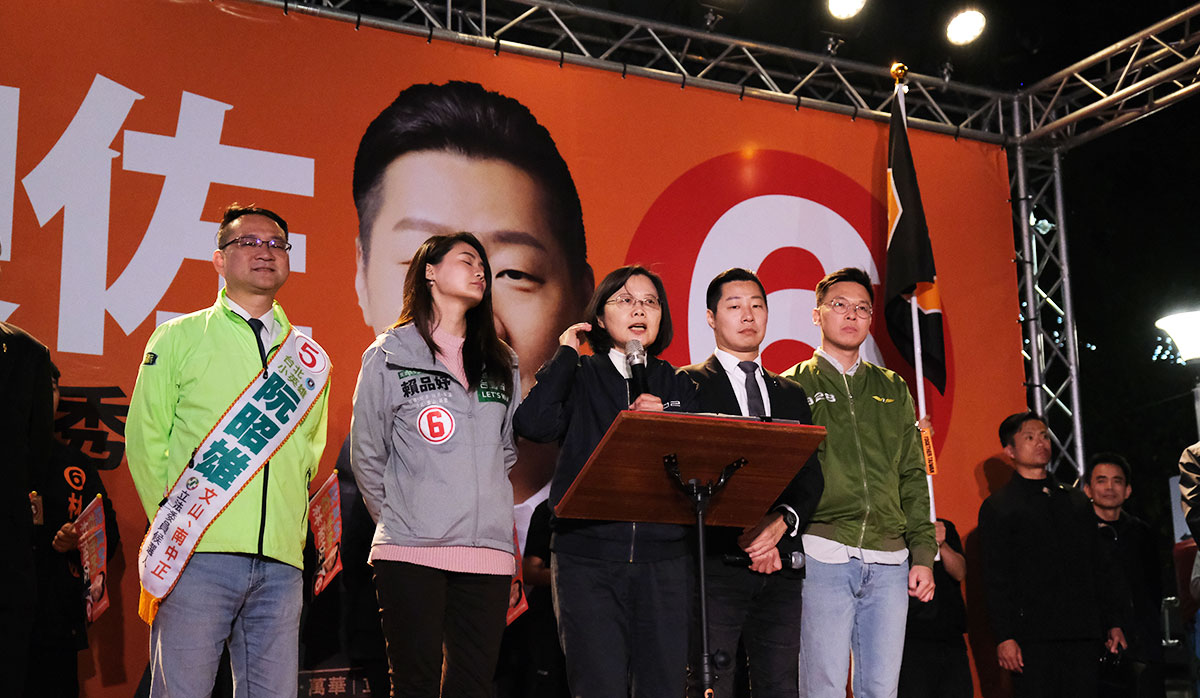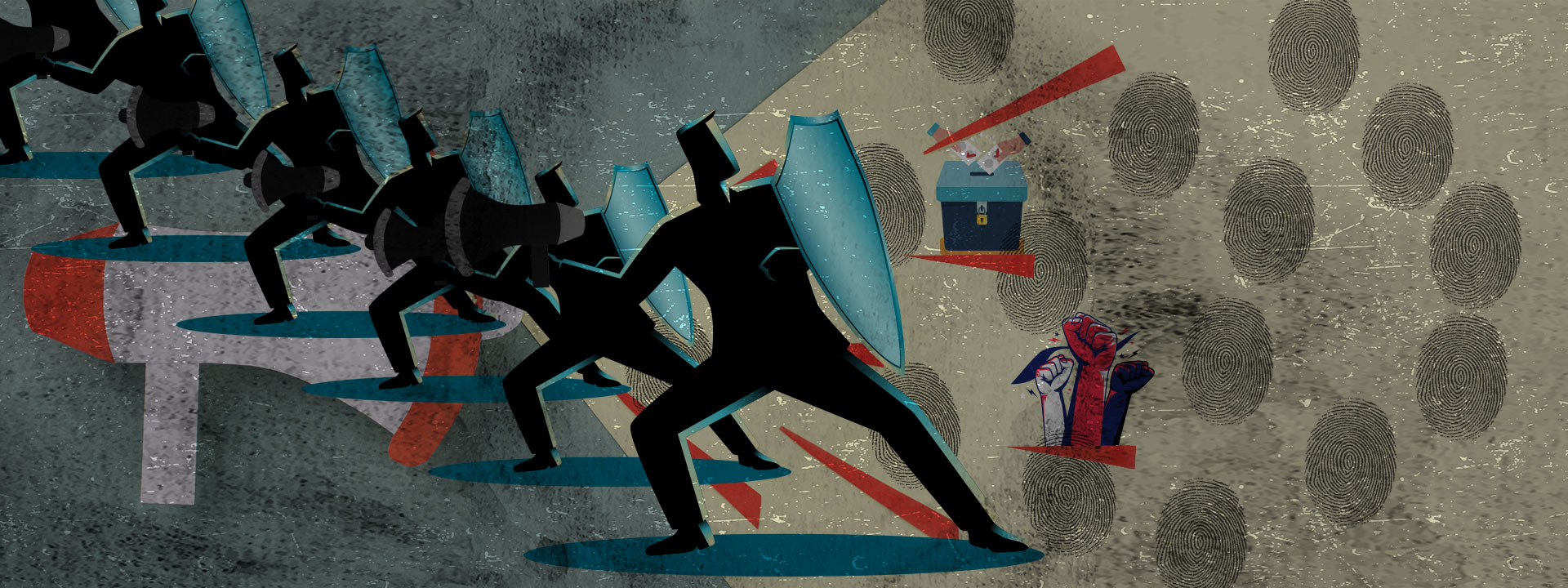In the last six years, Taiwan has been busy projecting itself as distinct from China, to the irritation of Beijing, which considers the island a rogue province. So long as the Democratic Progressive Party (DPP) keeps on winning elections, though, Taiwan will keep on saying that it is different from China. In 2020, the DPP won another four-year term, which means Beijing will have to bear with a “province” that says it isn’t one, at least until 2024.
Part of DPP’s platform is its advocacy to keep Taiwan as it is: a self-governing island. Its main rival, the Kuomintang, by comparison, has held on to its idea of “one China” even after settling in Taiwan in 1945, and then defeated by the Chinese Communist Party (CCP) in the Chinese civil war four years later. The Kuomintang ruled Taiwan with an iron fist for more than four decades and did not begin to loosen its grip until the late 1980s and early 1990s. It was not until 1996 that Taiwan’s transition to democracy was completed.
That DPP has gotten to rule Taiwan at all, though, already makes the island different from the People’s Republic of China. Taiwan is a democracy led by a president and parliament that are selected through multiparty elections. But just to make its assertion of “Taiwan is different from China” more solid, the island’s DPP government has been trying to keep its human rights record as stellar as possible. And while it has attracted criticism for falling short when it comes to protecting the rights of indigenous peoples and migrant workers, as well as in preventing forced evictions and demolitions in particular, the DPP government on the whole has been getting respectable marks from rights groups. In its 2021 Freedom in the World report, the international rights organization Freedom House gave Taiwan a score of 94 out of 100, and declared it “free.”
Such developments have not been welcomed by its giant neighbor across the Strait, and indications are that China has apparently been stepping up efforts to thwart Taiwan and DPP from becoming stronger forces. Indeed, Beijing has been accused of interfering with not only the island’s media but also with its elections. This has kept the Taiwanese government and the island’s civil society, which is determined to defend democracy at all costs, on their toes. Defending democracy has been tricky, however, especially when it comes to polls.

Former presidential aspirant Han Kuo-yu (center) of the Kuomintang Party was kicked out of his post as mayor of Kaohsiung City via a recall vote in 2020. He angered many Taiwanese when he met officials from the Liaison Office of the People’s Republic of China on a visit to Hong Kong at the height of the presidential campaign.
The year of recalls
Take the case of former Kaohsiung mayor and defeated 2020 presidential candidate Han Kuo-yu. On Jan. 17, 2022, a Taiwanese court found five businessmen working in the People’s Republic of China guilty of taking money from the CCP to convince Taiwanese to go home and vote Han as president.
Two years earlier, Han angered many Taiwanese when it was revealed that at the height of the presidential campaign, he had visited Hong Kong to meet officials from the Liaison Office of the Central People’s Republic of China. He was kicked out of the Kaohsiung mayor’s office by way of a recall election in June 2020.
Han’s recall, however, inspired similar moves against politicians — not necessarily with the DPP — seen as being pro-democracy and pro-independence. In February 2021, Kaohsiung City Councilor Huang Jie faced a recall attempt initiated by the Kuomintang. Huang, who ran as an independent candidate supporting gender equality and Taiwan independence, had been a critic of Han when he was still mayor. She survived the recall vote.
Then two lawmakers who happened to be members of the Foreign and National Defense Committee in the Legislative Yuan became recall targets. In October, lawmaker Chen Po-wei’s of the pro-independence Taiwan Statebuilding Party lost his post after being recalled. Independent legislator Freddy Lim — also the lead vocalist of the heavy-metal rock band Cththonic — proved luckier, remaining in parliament after his own recall vote in January 2022. Lim, who is pro-independence, has also long been vocal about his support for those fighting for their rights in Hong Kong, Xinjiang, and Tibet.
Civic groups say that in such “revenge recalls,” the democratic system is being sabotaged by those who are abusing the people’s democratic rights. The groups and some observers also see the hand of Beijing in the attempts to recall Huang, Chen, and Lim. They add that these attempts — and the election of Han as mayor in 2018 in a DPP stronghold — would not have gained any traction if it hadn’t been for the fake news and disinformation proliferating in social media. But even there, they see the shadow of Beijing.

Then again, that is actually old news. In its 2019 report “China’s Pursuit of a New World Media Order,” global media monitor Reporters Without Borders (RSF) said, “Beijing has been targeting Taiwan with disinformation campaigns for decades, with the aim of undermining its authorities and facilitating a future reunification. However, it is only recently that social networks have enabled these activities to have a viral impact. In the last few years, the Taiwanese government and media have exposed many examples of Chinese disinformation campaigns on a wide range of subjects, including pension reform and the validity of a Taiwanese passport abroad.”
No to Want Want channel
In 2020, RSF rather uncharacteristically supported the decision of Taiwan’s National Communications Commission (NCC) not to renew the license of Chung Tien Television (CTi). According to NCC, the cable TV station failed to address the media regulator’s findings of bias and disinformation. Normally, RSF would be on the side of the media outfit that had lost its license. But this time, it said that while it regretted “the non-renewal of news channel CTi TV’s broadcasting licensee as it bears consequences for its staff … the decision does not go against press freedom.”
It added, “Taiwan, a liberal democracy, is the victim of growing media interference from the People’s Republic of China, who aggressively claims its sovereignty on the island. Taiwan’s journalists are also suffering from a very politically polarized media environment dominated by sensationalism and the pursuit of profit, which impairs the right of the public to receive complete and unbiased information.”
CTi is part of the Want Want China Times Media Group whose chairman is perceived to be pro-Beijing. After all, he has publicly said that the June 4, 1989 Tiananmen massacre “reports are incorrect.” He has also allegedly fired an editor for criticizing Chinese officials. Yet, according to an October 2020 story run by Taipei Times, the Want Want boss told the NCC that he “does not interfere in the daily operations of CTi News and that he had come to the meeting (on CTi’s license-renewal application) to defend the dignity and the survival of the people working at the news channel.”
The NCC was apparently unconvinced, however. It declined to renew CTi’s license and also later turned down CTi Variety’s business plan to include newscasts and a political talk show in its programming. NCC Deputy Chairman and spokesman Wong Po-tsung was quoted by Taipei Times as saying, “Based on the materials we reviewed, we believe that the variety channel’s internal control mechanism would not be able to shield the news team from undue interference from its largest shareholder.”
Yet while CTi’s TV presence has been diminished, it is now growing online. Its former TV news anchors have been repackaged as Key Opinion Leaders on YouTube. As of Feb. 21, 2022, the CTi News YouTube channel had 2.74 million subscribers, up from the 400,000 or so it had before it lost its TV license. It is also on Facebook and Instagram.

Taiwan’s civil society keeps the pressure on the Democratic Progressive Party, led by President Tsai Ing-wen, on various issues such as interference from Beijing, minority rights, and climate change.
Attacks online and offline
All these have kept Taiwan’s civil society working overtime, especially in the last two years. As rights groups keep the pressure on the DPP government on issues ranging from minority rights to climate change, they have also had to keep an eye on attacks online and offline, most of which they attribute to Beijing and its allies in Taiwan. Not surprisingly, rights organizations involved in campaigns against Beijing’s actions in Hong Kong, Xinjiang, Tibet, and yes, Taiwan, in particular, have ramped up their digital security systems.
The rights groups, however, have noted that attacks offline have increased, needing the intervention of the police even in peaceful assemblies. During the 2021 commemoration of the Tiananmen massacre, for instance, a man was arrested after he toppled displays at the “mourning pavilion” set up at Liberty Square in downtown Taipei. More recently, members of a civic group were harassed while they assembled in front of the Bank of China in Taipei as part of the “No Beijing Olympics 2022.”
These have led Taiwan’s civil society to adopt a strategy that it calls “defensive democracy,” which roughly translates to resisting authoritarian or totalitarian expansion and enhancing awareness by promoting democratic values and protecting the system. It has pledged support for the “Open Parliament Partnership Action Plan” that was launched in mid-2021 by lawmaker Freddy Lim in a bid to encourage civic participation in the legislature.
How civic technology and digital democracy can confront digital authoritarianism has become a focal point of discussion among civic groups and legislators, as well as government officials. Through advocating legislation or amending the law and taking actions and initiatives, Taiwan’s civil society aims to establish a better environment for identifying and preventing infiltration by anti-democracy actors. Taiwan’s civil society continuously and clearly expresses to the international community that Taiwan rejects totalitarian interference, and Taiwan has a vibrant democracy that is worth protecting and defending. ●
Li-Ang Chen is a human-rights activist based in Taiwan.



















